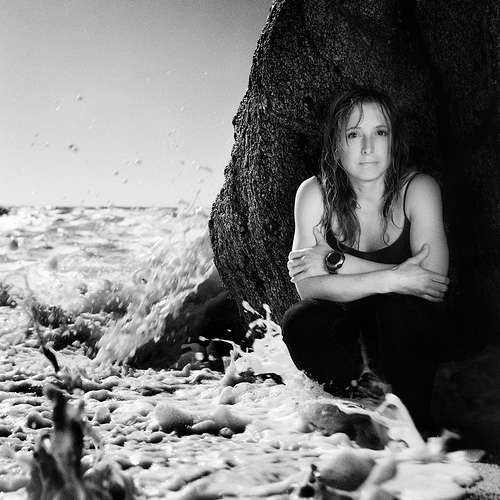Mermaid on a Mission

Roz Savage was the first woman to row across three oceans—the Indian, Atlantic, and Pacific—but what scares her more than rogue waves and boat-flipping storms is an ever-more-polluted sea. Women’s Movement caught up with Savage, 44, as she prepared to leave on her next expedition: an awareness-building row around her home country, Britain.
Women’s Movement: Your next adventure is a 2,500-mile circumnavigation of Britain by kayak and bike this spring and summer. How will this trip compare to your other trips?
Roz Savage: Last year I spent over five months alone at sea crossing the Indian Ocean. This year’s trip will be a lot more sociable. I am really looking forward to rediscovering my home country after spending so much of the last few years on a tiny rowboat. But the British coastline is also amongst the most dangerous in the world, with strong tides and currents, so it will be as challenging as my ocean crossings, just in a different way.
WM: The Britain trip is designed to advocate for a national plastic-bag ban. What have you witnessed on your ocean travels to make this a dear cause?
Savage: The main point of this trip is to launch TrashMobs, a new initiative in which I will invite people to join me as I clean up beaches and waterways along my route. I’ve witnessed a lot of plastic pollution in the ocean, and I found it quite upsetting to see plastic floating thousands of miles from land, where it kills wildlife and contaminates the seawater. As well as tackling this issue on the beaches, we also need to tackle it at policy level, so I will be gathering signatures on a petition asking the UK government to reduce excess plastic at source.
WM: Why should the issue of plastic pollution be important to all of us?
Savage: Fish eat small pieces of plastic, mistaking it for food. Chemicals from the plastic are absorbed into their bodies, and accumulate all the way up the food chain until they reach the top—us. Scientists have also found toxic chemicals such as BPA in 100 percent of ocean water samples, and they believe that plastics are the source. BPA has been linked to a variety of diseases including autism, ADHD, erectile dysfunction, heart disease in women, depression, learning disorders, asthma, obesity, type-2 diabetes, and infertility, and people exposed to BPA will have a higher risk of developing prostate and breast cancers. We need to find alternatives to plastic as global oil reserves run low, so why not do it sooner and save ourselves from all these toxic threats?
WM: How would you recommend we help the cause?
Savage: The first thing is to understand that everything you do makes a difference. One oar stroke doesn’t get me very far, but over the last 6 years I have taken over 5 million oar strokes and covered 15,000 miles, so all those tiny actions really do add up. Every time you remember to use your reusable grocery bag, or travel mug, or stainless steel water bottle, you are making a difference. And every time someone sees you use your reusable item, you’re helping to change the culture. I hope that eventually it will become as socially embarrassing to be seen using a ‘disposable’ plastic item as it would be if you were caught failing to clean up after your dog, drinking and driving, or using a racially offensive term. I hope that in my lifetime I will see world in which ecologically selfish behavior is a thing of the past and we will have evolved to a more enlightened mindset.
Kamagra oral jelly Online something to buy the most convenient way. He doesn’t demand from you any actions except how to visit the website. And in separate with goods necessary to you to put the end. To specify your address and to wait for the supplier to whom you will give money.


February 22nd, 2012 at 10:42 pm
‘I hope that in my lifetime I will see world in which ecologically selfish behavior is a thing of the past and we will have evolved to a more enlightened mindset.’ – a tall order, but surely not impossible.
April 16th, 2012 at 7:44 am
Extremely helpful airltce, please write more.
November 22nd, 2012 at 6:57 am
At last some rationality in our little deabte.
November 22nd, 2012 at 9:15 am
Roz is a true inspiration not only to women but to men aronud the world. The goal to set across the ocean in a small boat and a set of oars is just amazing. I hope that she can bring awareness to the amount of trash floating in the ocean and also bring awareness to the climate change.